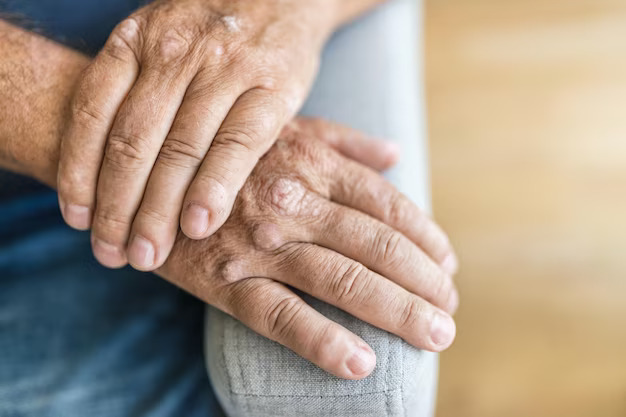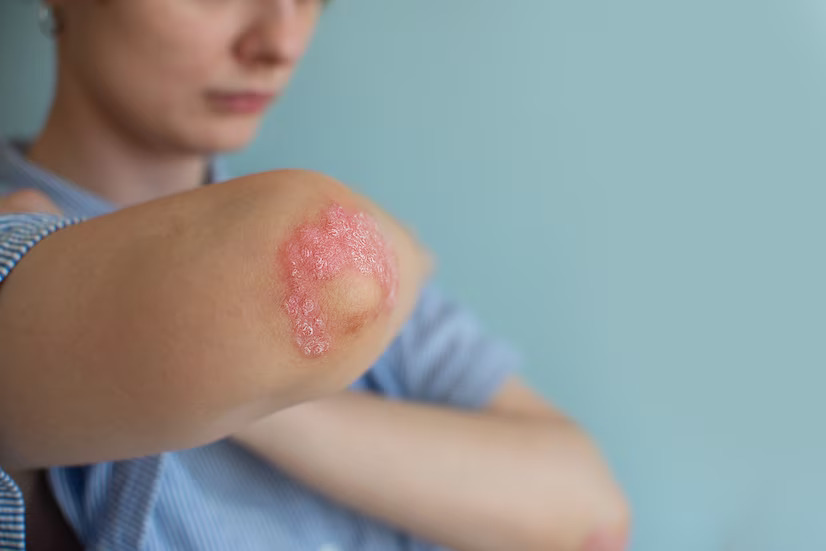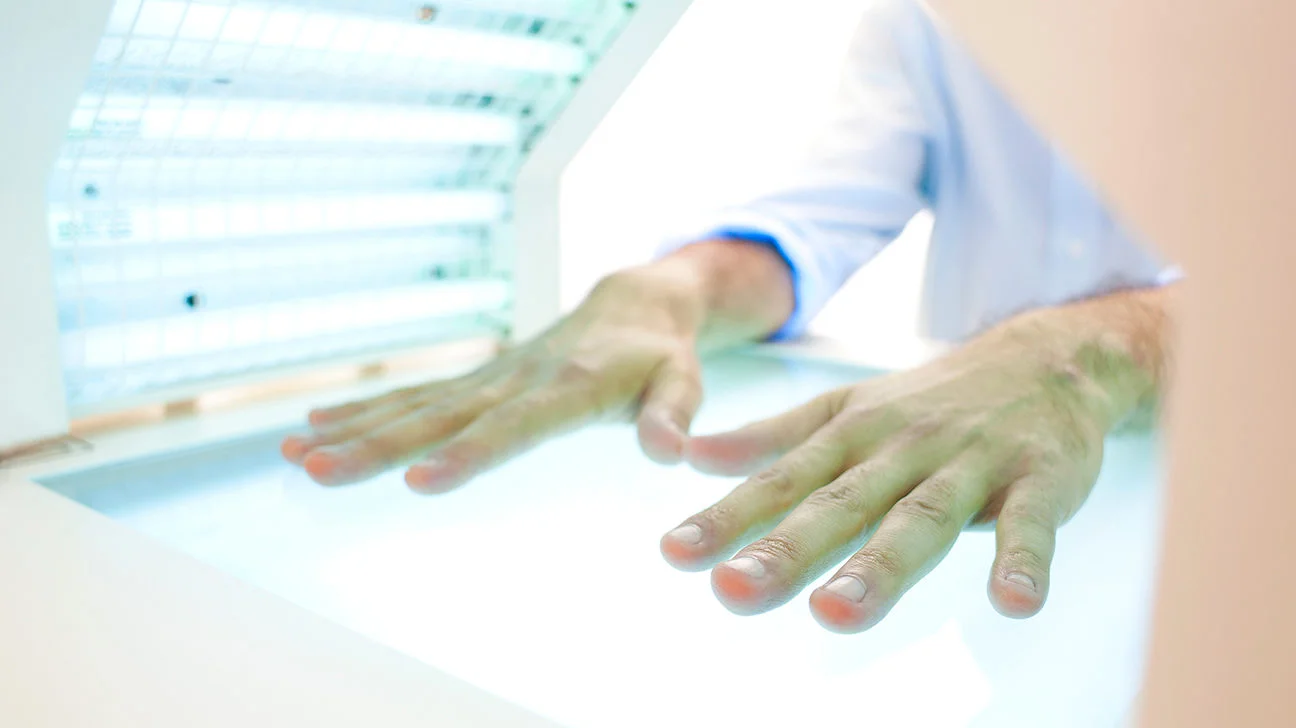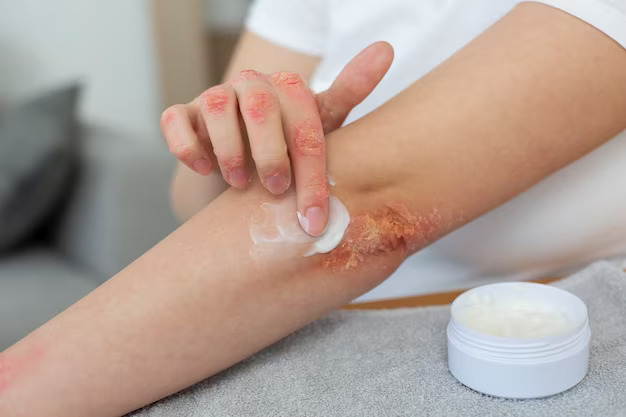- About Us
- Treatments
Skin Treatments
MenuMenuHair Treatments
MenuBody Treatments
Menu - Procedures
Aesthetics
MenuCosmetic Surgery
Menu - Training
- Products
- Gallery
- Contact Us
Psoriasis is a chronic skin condition characterized by the presence of thick, pink, or red patches covered with white or silvery scales known as plaques. The most common type is plaque psoriasis, affecting approximately 80-90% of individuals regardless of gender or age. In severe cases, these plaques can merge and cover larger areas of the body. Psoriasis can cause discomfort and self-consciousness, affecting various regions, including:
It’s essential to note that psoriasis is not contagious, meaning it cannot be transmitted from person to person through contact with psoriatic lesions.
At Dr. Samatha Clinic, our expert dermatologists provide advanced treatments for psoriasis, aiming to restore skin health and alleviate symptoms.


Dr. Samatha, a leading skin specialist, thoroughly examines and diagnoses the root cause of the condition to provide the most effective psoriasis treatment in Hyderabad.



Dr. Samatha, a leading skin specialist, thoroughly examines and diagnoses the root cause of the condition to provide the most effective psoriasis treatment in Hyderabad.

Book An Appointment